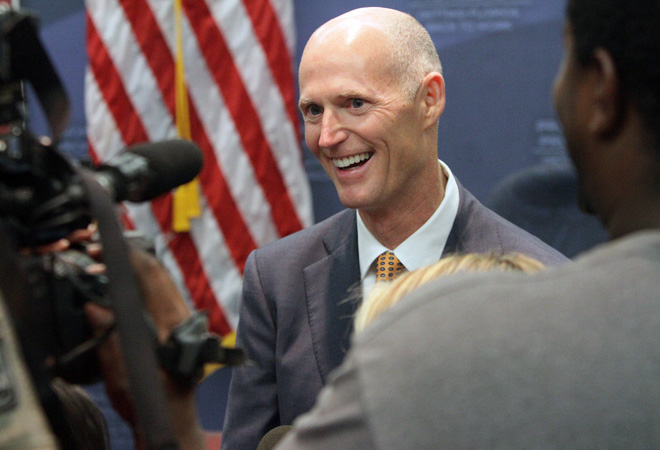The big swing state of Florida is angling to increase its clout in the 2012 Republican primaries, and its official state government committee has made a key decision about how to time the primary — or to be exact, how to time when they will be deciding the actual date for the primary.
The Miami Herald reports:
“Call it what you will, Florida wants to have relevance,” said Secretary of State Kurt Browning, the non-voting member of the Presidential Preference Primary Committee.
The panel of six legislators, along with former Gov. Bob Martinez and an adviser to the governor, met for 20 minutes Friday but postponed a decision until Sept. 30, one day before all states must report their primary dates to the parties.
By postponing the decision to right up until the deadline, Florida will be positioning itself to observe the decisions others have made, and to react to those decisions in the homestretch. This can in turn increase the pressure for other states to behave similarly — and for the officially-sanctioned early contests like Iowa and New Hampshire to move up their own dates in order to keep a significant gap before the next contests.
In a way, think of it as being the same strategy as someone who waits until the final minute of an eBay auction, before they place their bid.
In 2008, Florida held its primary in January, breaking the official rules from both parties that only Iowa, New Hampshire, Nevada and South Carolina could do so. This led to Florida losing half its delegates on the Republican side — but the state still benefited from being a major political victory for John McCain, sealing his hold on the nomination. On the Democratic side, they were supposed to not count at all, which led to extended political wrangling between the national DNC, the Hillary Clinton campaign — which had won the state — and the Obama campaign.









